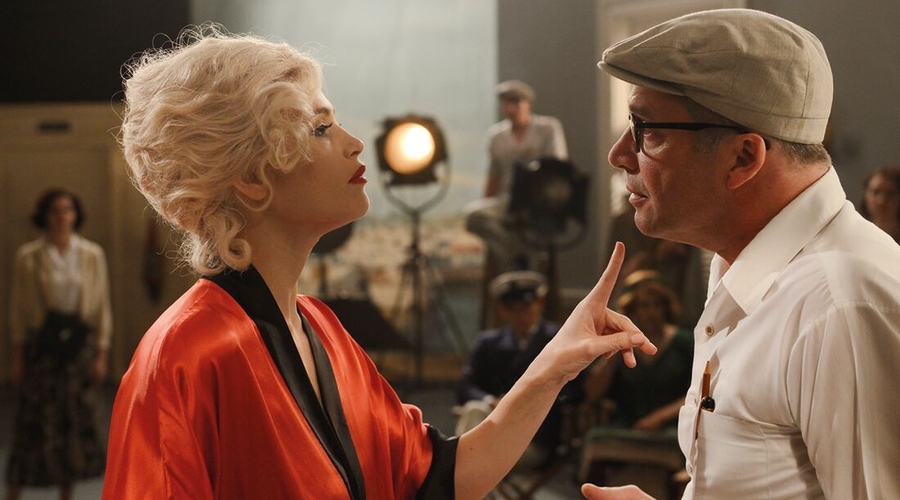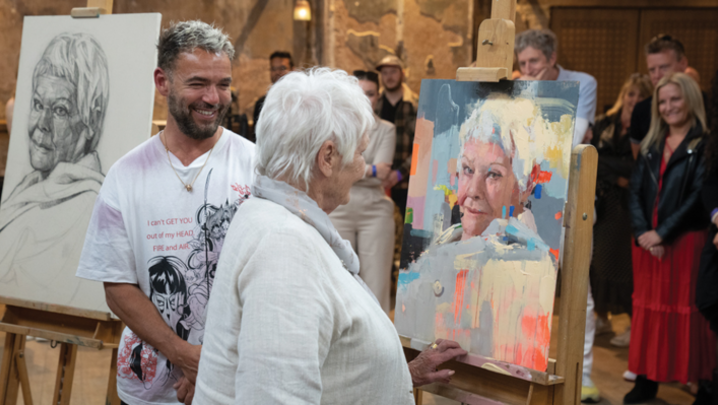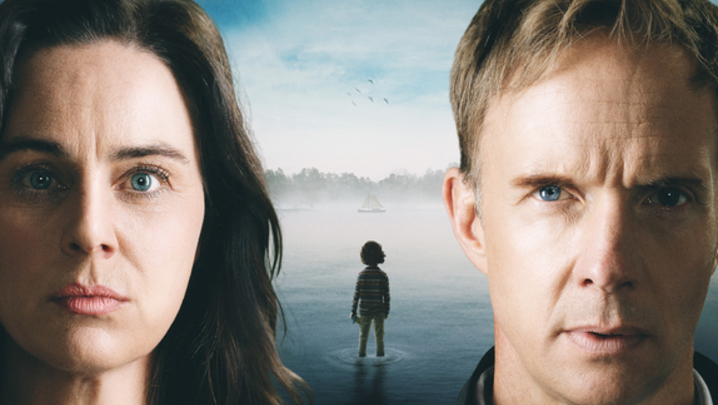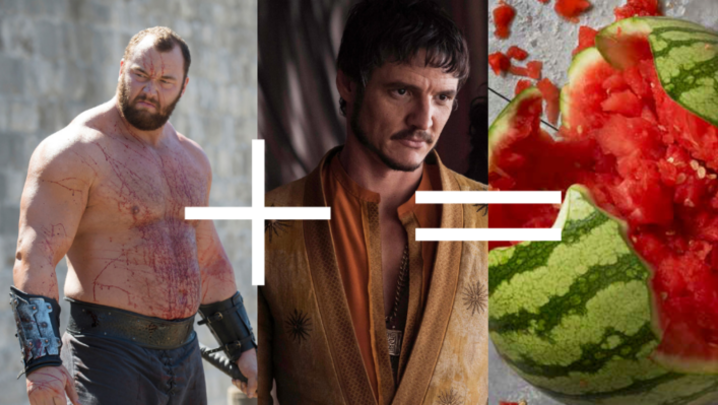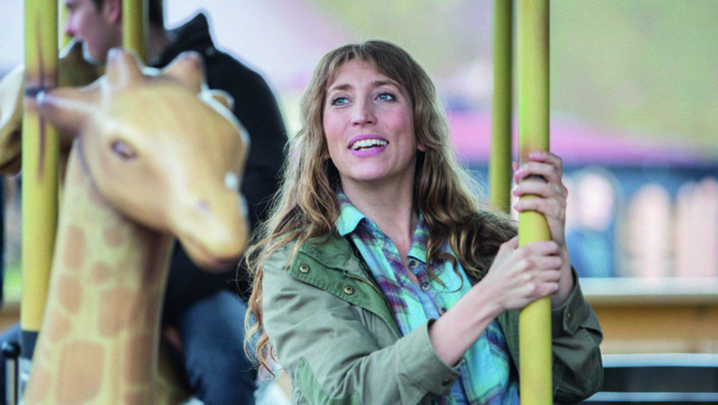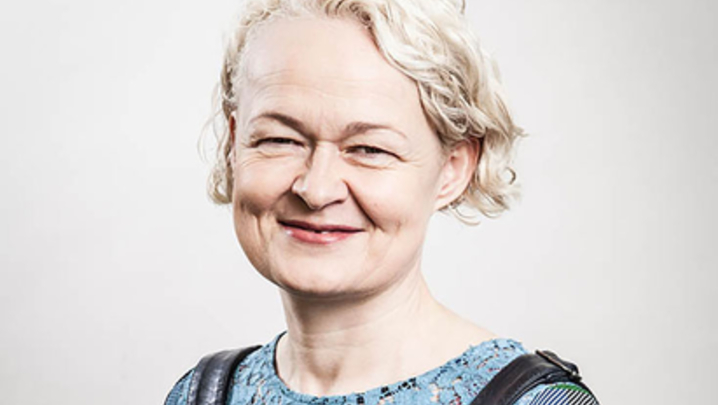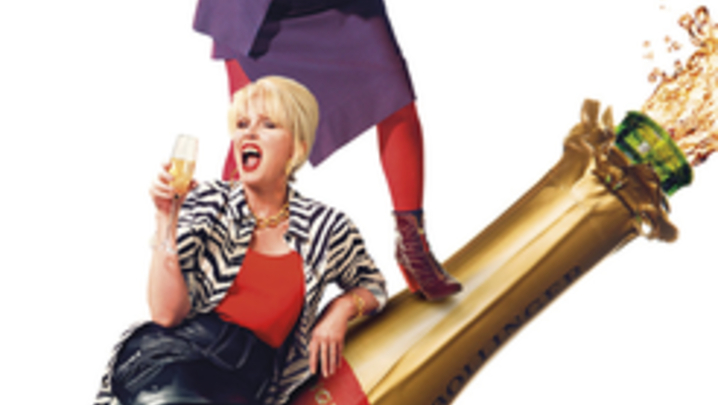Lisa Campbell gets the low-down on the latest batch of Sky Arts’ Urban Myths, the series where truth trumps accuracy
What happens when you give writers with big imaginations a kernel of truth? Sky Arts’ Urban Myths, that’s what – charming, half-hour comedies that dramatise true, or “true-ish”, tales from the worlds of Hollywood, music, arts and literature.
The second series – which features stories ranging from Agatha Christie’s 11-day disappearance to the first meeting of the teenage David Bowie and Marc Bolan, and Johnny Cash duelling with an ostrich – airs this month on the channel and on-demand. A third installment is in the pipeline.
The latest series has been upped to eight episodes following the success of last year’s five-parter. Those stories included Muhammad Ali talking a suicidal stranger down from a ledge; Samuel Beckett befriending a young André the Giant in rural France; and Cary Grant introducing renowned psychologist Timothy Leary to LSD. Ironically, the launch of Urban Myths last January prompted something of a myth itself, with the casting of Joseph Fiennes as Michael Jackson provoking the ire of his daughter, Paris. She claimed it was “obviously intentional… to be insulting”.
The narrative recounted an alleged road trip that Jackson took across America with Elizabeth Taylor and Marlon Brando. Alongside complaints from Jackson’s family, there was a Twitter backlash and the show was subsequently shelved.
Whether or not you agree with the choice of casting, Sky’s head of entertainment and director of Sky Arts, Phil Edgar-Jones, stresses that the intention across all three series has been to create “an affectionate portrayal and to respect the talent they’re exploring”.
He adds: “They are predominantly warm stories that you want to tell someone else.” That is why the Salvador Dali episode in the latest series doesn’t dwell on his sexual obsessions but on his artistic temperament. The emphasis is on likeability and irreverence. Nevertheless, there are no plans to reverse the decision on Jackson.
To say Urban Myths got off to a great start is to understate the impact of the very first show, Bob Dylan: Knockin’ on Dave’s Door. Possibly the most popular episode, or certainly the one that “shone a light on the series”, according to Edgar-Jones, it tells the story of the iconic folk-rocker dropping by the home of Dave “Stewart”, one half of the Eurythmics, or, as it turns out, Dave the plumber.
As well as being beautifully performed by Eddie Marsan, the hilarious dialogue from writer Neil Webster encapsulated all the poetry and absurdity you’d want from a Dylan story. And, as is common to all these tales, you’re left not giving a damn about historical accuracy, you just want it to be true.
The eminent American folklorist Jan Harold Brunvand described an urban myth as having “a strong basic story-appeal, a foundation in actual belief, and a meaningful message or moral”. Whether every episode of Urban Myths lives up to this description is a matter of opinion, but the emphasis is on a lightness of tone and a sense of intrigue.
Who wouldn’t want to imagine what happened when Agatha Christie went missing for 11 days, prompting the police to draft in crime writers Sir Arthur Conan Doyle and Dorothy L Sayers? Or discover just how bizarre the encounter really was between Salvador Dali and rocker Alice Cooper? Or find out what happened when an unassuming, middle-aged man called Kev (Philip Glenister) gave rap legends Flavor Flav and Chuck D, from Public Enemy, a lift in his Ford Focus?
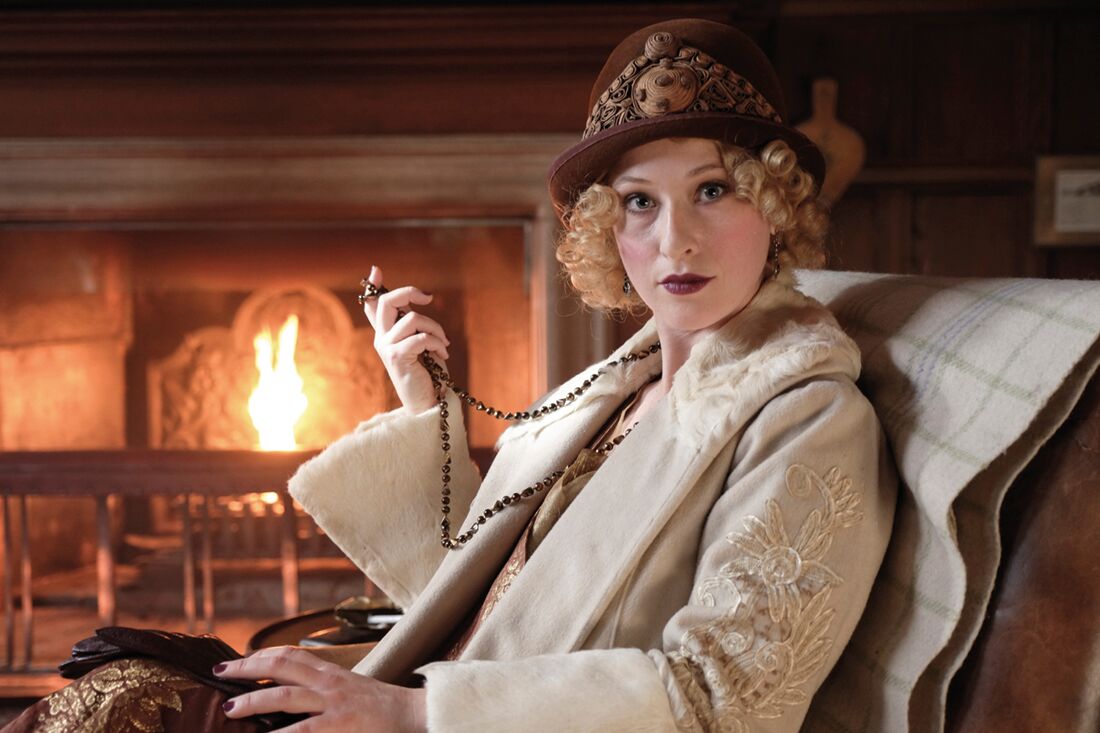
Such diverse stories also have the benefit of attracting a diverse, and impressively high-profile, range of talent in front of and behind the camera.
According to Sky comedy commissioner Tilusha Ghelani, who was responsible for three of the eight new episodes, part of the appeal is the creative freedom that Sky Arts affords. One of the joys for her as a commissioner is that this series offers a perfect place to grow talent: “For some of the indies, this is their first narrative piece.”
Given that dramas have famously long lead times, these relatively quick-turnaround episodes are often used as calling cards for independent producers, adds Ghelani. She credits them with achieving a cinematic look, despite budgets at around a quarter of a typical terrestrial drama budget.
“There’s something about their short-term nature that helps gear up an indie’s ambition to say, ‘What’s the most we can achieve in the four-day shoot?’,” she suggests. “And because we’ve had such a high standard of cast, indies have risen to the challenge of finding really big names.”
Among the stars of series 2 are Jack Whitehall and Luke Treadaway, playing Bolan and Bowie, respectively. Christie, meanwhile, is played by Anna Maxwell Martin, wonderfully accompanied by Bill Paterson and Rosie Cavaliero as a crime-writing comedy double act who deserve a series of their own.
While they could both have benefited from David Suchet’s Poirot to help solve their mystery, Suchet instead takes on Dali. Playing alongside Sheila Hancock and Noel Fielding, his manic, wide-eyed stare, flamboyant hand gestures and invented language perfectly encapsulate this most eccentric and unsettling of characters.
Suchet says that he was attracted to the part having been “a huge fan of the series”, adding: “I never imagined I’d play Dali. It’s one of the most extraordinary roles I’ve ever been offered.”
Like other actors in the series, Suchet was also won over by the quality of the scripts penned by a range of comedy writers. But he acknowledges the challenge of recreating these unique characters in just half an hour: “How do you play this guy? I watched every documentary and listened to his voice for hours and hours and couldn’t believe anyone could be like that.
“It’s one of the few jobs in nearly 50 years that I’ve done where I didn’t ask questions. [Directors] Jane [Pollard] and Iain [Forsyth] said ‘Do it’ and I said ‘OK’. It was as surreal as that.
“I realised that I could never know who he was so I deliberately didn’t want to pigeonhole him. I wanted to take him as seriously as he took himself.”
Gemma Arterton stars alongside James Purefoy in Marilyn Monroe and Billy Wilder, replaying the 47 takes it took to say: “It’s me. Sugar!” in Some Like It Hot.
A life-long fan of Monroe, Arterton sought to give a sense of her complexity – her humour, her vulnerability, but also the inner strength that emerged from a troubled upbringing.
By the time she came to the set, she’d read four biographies. She admits however, that the climate of #metoo almost made her think twice, given the casting-couch culture in which Monroe was forced to operate.
“I was worried about that,” says Arterton. “Then, I thought, this film is a moment in time, it doesn’t address that stuff but it does address the issues around being a woman on set – and she played in to that, too. I decided that she couldn’t help herself… because that’s all she’d known.”
For Zoe Rocha, the producer of Marilyn and Backstage at Live Aid, managing the limited budgets meant restricting the action to one location and “being very straight with everyone that there isn’t a massive pay packet, but there is a great story.
“You also have to be very fluid on set and adapt as you go along, so a strong relationship between the producer, writer and director is vital so you get as much value as you can on-screen.”
While Sky Arts does not attract huge ratings, the measure of success for Edgar-Jones is the long tail. His hope is that a new audience will come to these and also discover the first series.
Also indicative of how well they are working for the channel is the fact that Edgar-Jones plans to make featurelength versions of some of the stories.
“There’s space in the market for doing creative work without having big budgets, and going back to the idea that making TV is fun,” he argues. “Philip Glenister talked of returning from the set every night with a spring in his step.
“We try to create the ethos at Sky Arts that you don’t come to us to make money, but you come to indulge your love for the arts and for the medium.”

